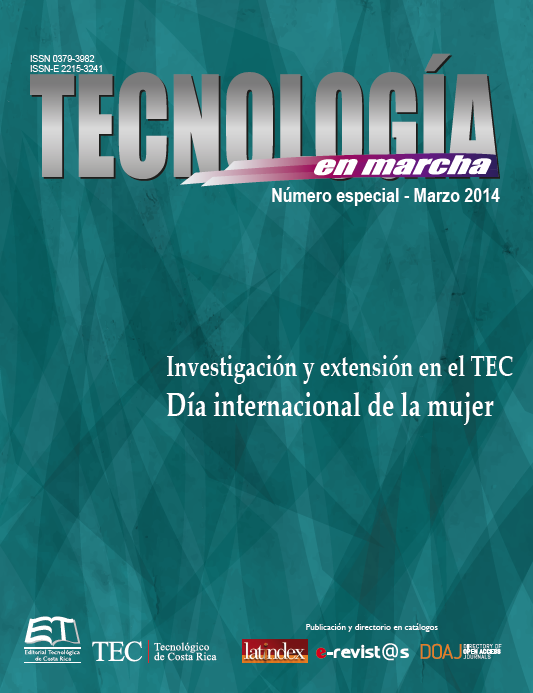Evaluation of drinking water chlorination by-products and their relationship to induce mutagenesis (cell mutations)
Main Article Content
Abstract
In the chlorination process produces a series of chemical reactions between the chlorine used in the disinfection and the organic matter present in the water to be treated. The nature and concentration of the compounds formed, are dependent physicochemical variables of soil organic matter, which react with chlorine added products originating from different compounds, are toxic, mutagenic and carcinogenic including, all together are known as chlorination byproducts (acronym SPD), which include compounds called trihalomethanes (THM’s). It was investigated the presence of these types of products in costa rican waters by the technique of solid phase microextraction (HEADSPACE / SPME Solid Phase Microextraction / GS-MS), using a Varian 450 Gas Chromatograph Mass Spectrometer coupled. It was analyzed 39 samples of water from local groundwater sources and surface water sources (full treatment plants) in users homes dispensed by treatment systems / Central Canton of Cartago and Costa Rican Water and Sewer Institute Plants of Moravia, Guadalupe and Pavas, with a total of 156 products identified and quantified corresponding these to: chloroform, bromodichloromethane, and tribromochloromethane dibromochloromethane. In water samples complete treatment systems found that 80 products was analyzed, 12 of these exceeded the maximum allowed according to National Regulations for Water Quality human consumption, while the aqueducts supplied by groundwater administered by the Municipality of Cartago, 76 products was analyzed, only one of them exceeded the maximum allowed.
Article Details
Los autores conservan los derechos de autor y ceden a la revista el derecho de la primera publicación y pueda editarlo, reproducirlo, distribuirlo, exhibirlo y comunicarlo en el país y en el extranjero mediante medios impresos y electrónicos. Asimismo, asumen el compromiso sobre cualquier litigio o reclamación relacionada con derechos de propiedad intelectual, exonerando de responsabilidad a la Editorial Tecnológica de Costa Rica. Además, se establece que los autores pueden realizar otros acuerdos contractuales independientes y adicionales para la distribución no exclusiva de la versión del artículo publicado en esta revista (p. ej., incluirlo en un repositorio institucional o publicarlo en un libro) siempre que indiquen claramente que el trabajo se publicó por primera vez en esta revista.

